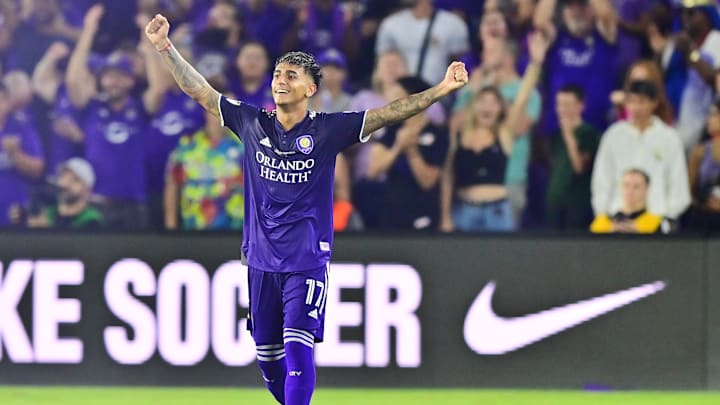With a 3-0 victory in last night's US Open Cup final, Orlando City put up a score suggesting a dominant performance with more than enough offense. In reality, the team used a shift in their defensive tactics to generate the burst of offense that closed the game.
Orlando had stretches throughout the first half in which they looked like the superior team. Even during these runs, though, they failed to break down Sacramento's well-organized defense and failed to get shots on goal. At times Ercan Kara, who has played so well of late, looked uncertain about what to do, hoping to play big in the center of the attack rather than create movement off-the ball to help open up the block.
Fans and pundits will likely (and rightly) make much of Oscar Pareja's decision to replace Kara with Benji Michel in the 61st minute. Certainly Michel's energy changed the shape of the game, and the team took three shots within minutes after he came on. Michel's legs changed not just the attack but, even more important, the defense.
As the game completed its first hour, Orlando moved their press higher up the pitch, but with Michel in place, their tactics changed. Rather than simply organizing the defense immediately, the Lions began to employ a true high press as well as an aggressive counterpress. The Republic had looked calm throughout the evening, content to concede a possession differential in favor of looking for smart opportunities to score. As the counterpress took effect, Sacramento played more and more from their heels, and the momentum shifted heavily in a favor of Orlando.
The team's first goal came after an excellent example of that effective high press. From the striker
position, Michel pursues the ball both across the pitch and back toward the goal line. The pressure forced Sacramento defender Dan Casey to commit an error, but it was the support from Iván Angulo
that made the miscue costly. Angulo was positioned about 35 yards up the pitch, but ran to close down Casey. The timing of his run is important. He didn't leave when Casey mishandled the pass; he began sprinting when the pass was made. Michel continued his pressure, forcing Casey toward the corner and toward a hustling Angulo (a designed part of the plan).
Orlando City, probably feeling the pressure after 70 minutes of scoreless play against an inspired underdog in a cup final, increased the intensity of the game without becoming frantic. The press remained organized and focused. As much as Casey will be scapegoated for that error (as well as his penalty just four minutes later), Orlando's system deserves credit for forcing the Republic backward and creating an error to capitalize on.
The team deserves credit, too, for not letting up. With a 1-0 lead, they continued the assault, countering quickly as Sacramento tried to push up the field. At 2-0 (mistakenly considered the most dangerous lead in sports), they kept after the ball, nearly scoring immediately after the penalty kick and eventually putting in a late one to finish the game. Fittingly, the final goal came from Michel.
On a night when players like Pedro Gallese, João Moutinho, and Ruan had strong performances, it might be the defensive play of the Lions' attackers that changed the flow of the game, leading to Orlando's first championship.
